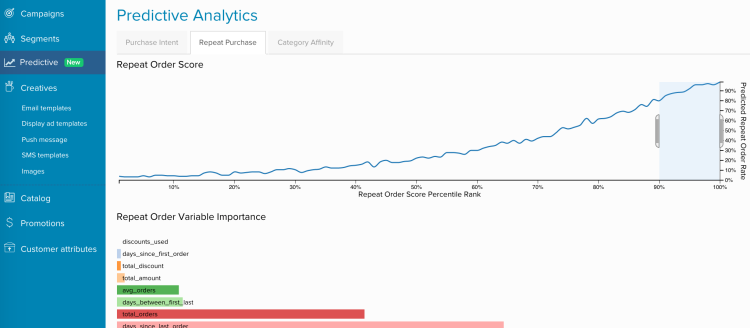Marketing automation has proven value. Four in five users think it’s worth the investment. 80 percent see leads increase and 77 percent see conversions increase.
But most marketing automation offerings are:
• B2B-focused
• Email-centric
• Focused on segments, rather than individuals
B2C marketers increasingly desire automation capabilities similar to their B2B counterparts’. But they also need more refined personalization because they typically deal with a far greater variety of products. Today they have few options.

BlueShift, founded last year by a team of marketing and data science leaders from WalmartLabs and Groupon, wants to address the underserved B2C market.
The company, focused primarily on ecommerce customers, combines dynamic segmentation with dynamic content, meaning identity data and content can be aligned more easily for greater personalization.
The result is what it calls “segment-of-one” marketing automation.
Traditional marketing automation lets marketers create segments, but the greater the number of segments, the greater the challenge of managing and engaging them.
BlueShift builds customer profiles by leveraging primarily real-time behavioral data, whereas many marketing automation solutions rely mostly on historical data, which is limited and stagnant. The solution also offers predictive capabilities, which traditional marketing automation users often have to use partners for.

Marketers using the platform can engage customers via email, display ads, push notifications, and SMS, as well as other channels via API.
BlueShift has raised $2.6 million seed from Nexus Venture Partners; New Enterprise Associates; Tim Kopp, the former CMO of ExactTarget; and the founders of Kosmix, which was bought and turned into WalmartLabs.


